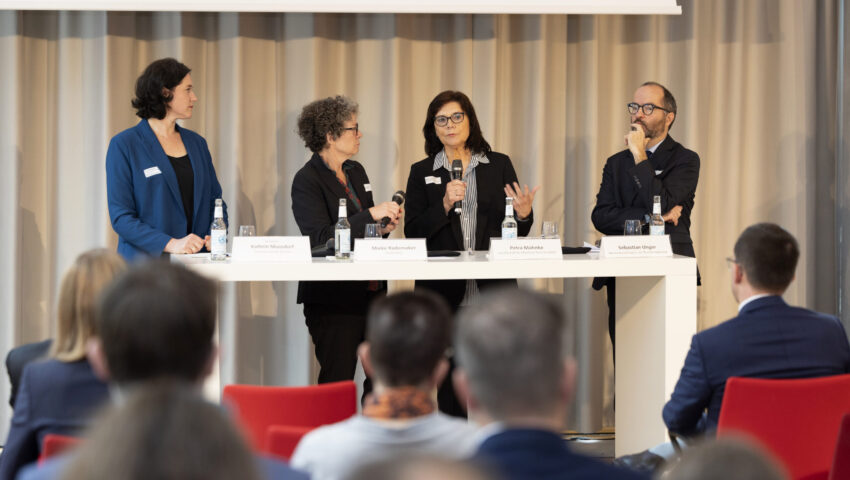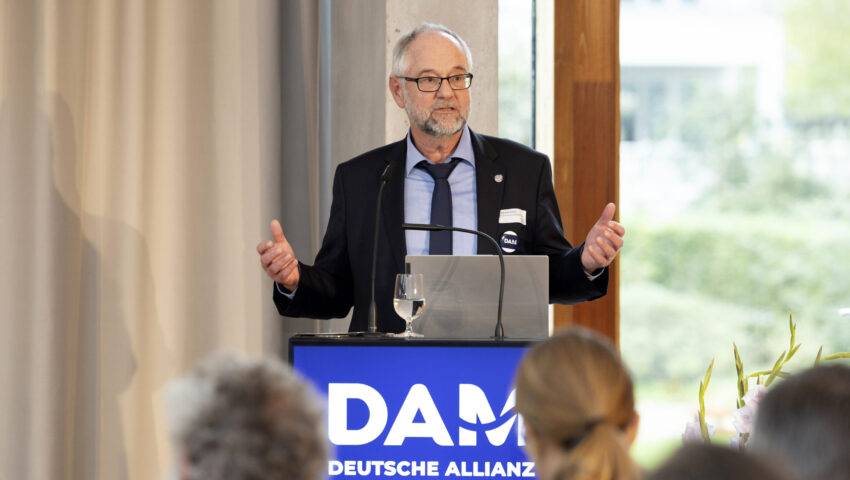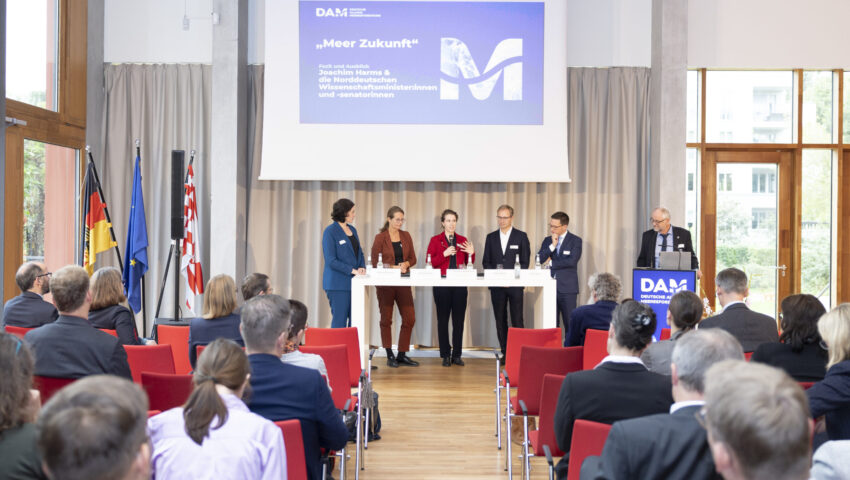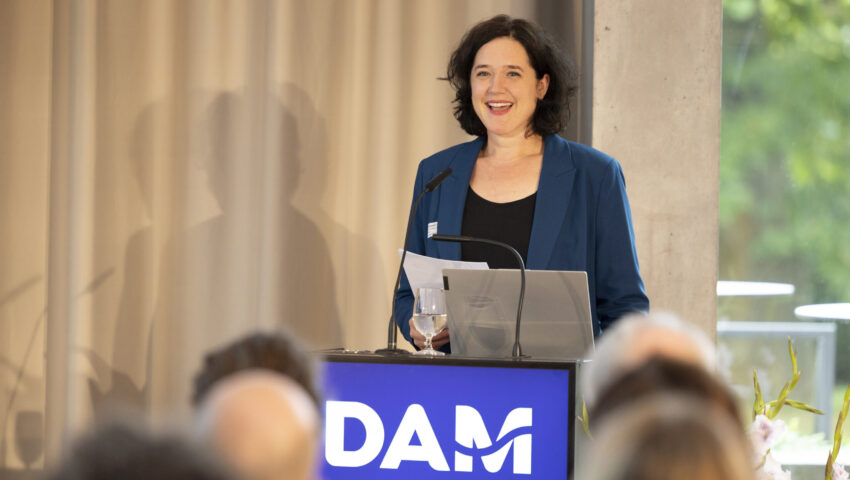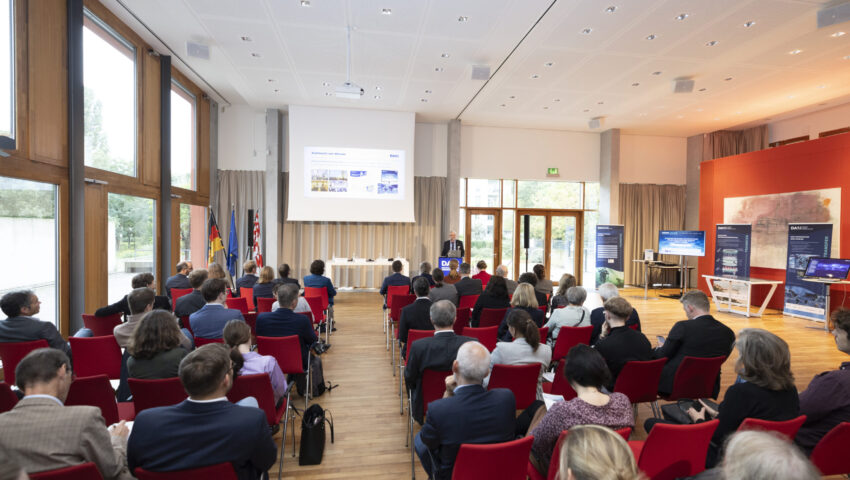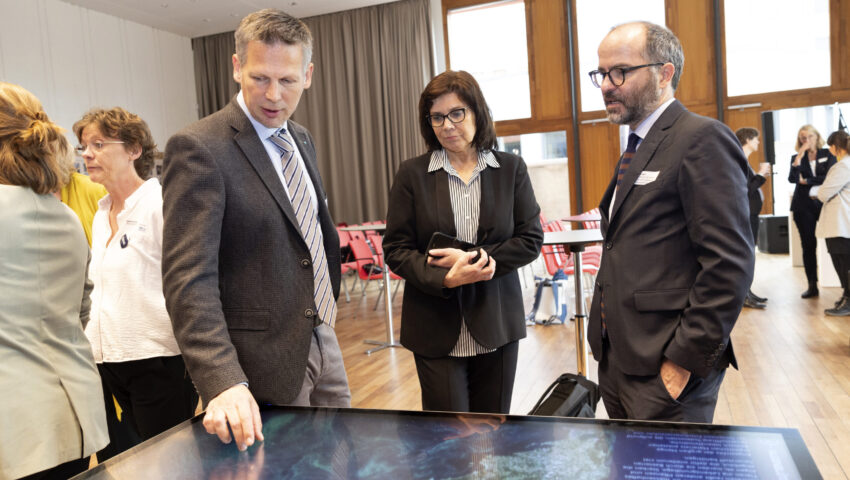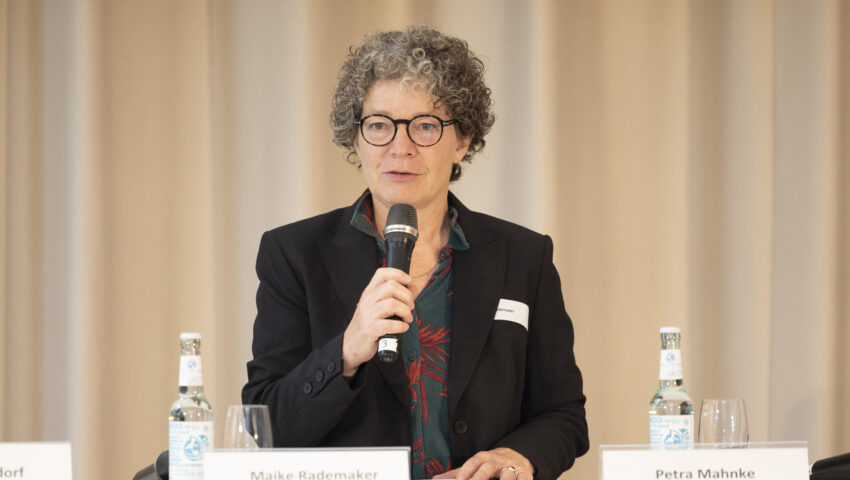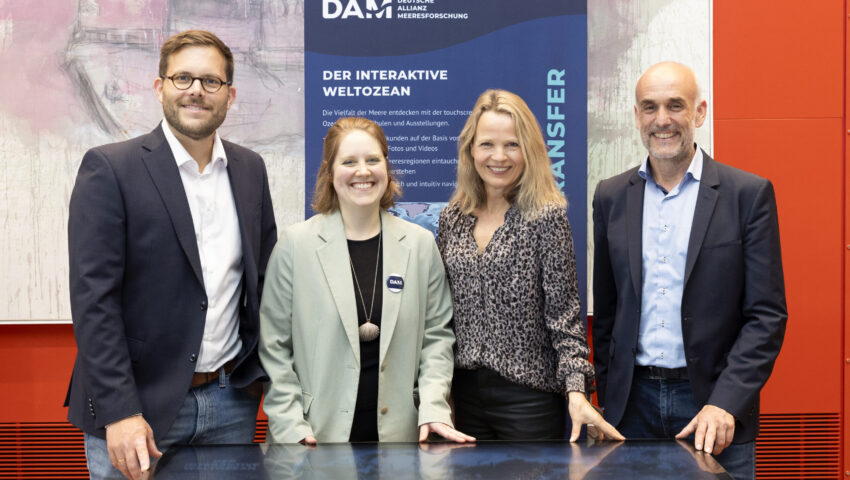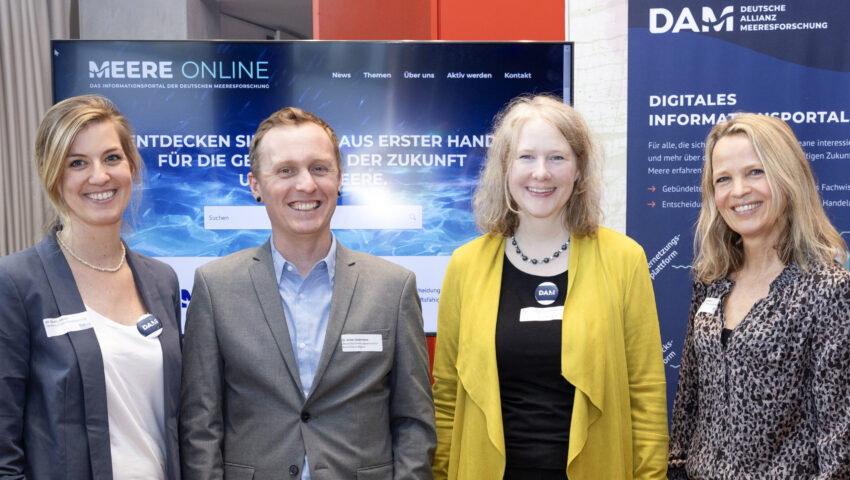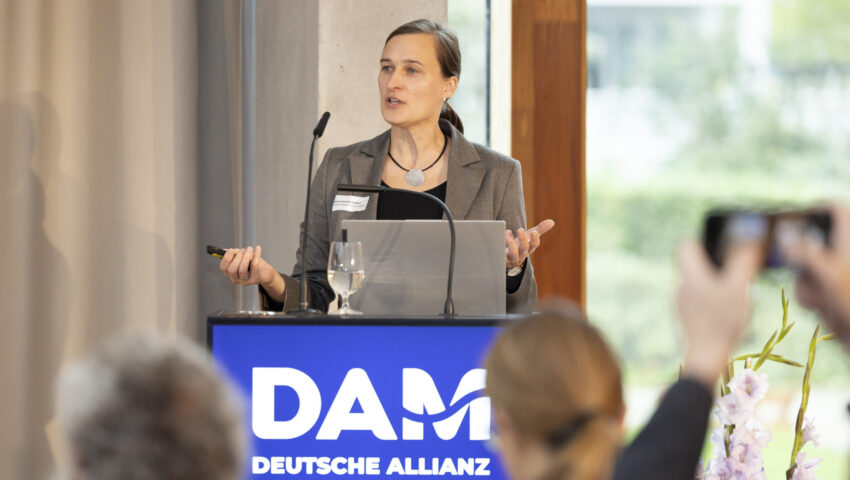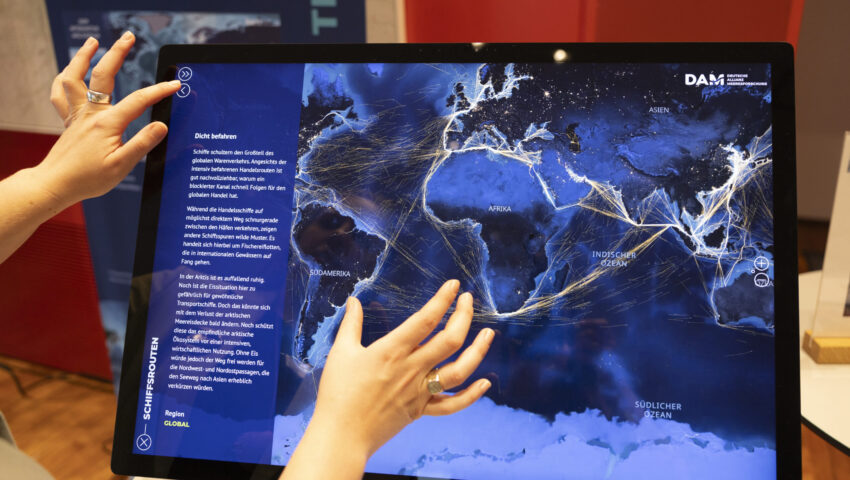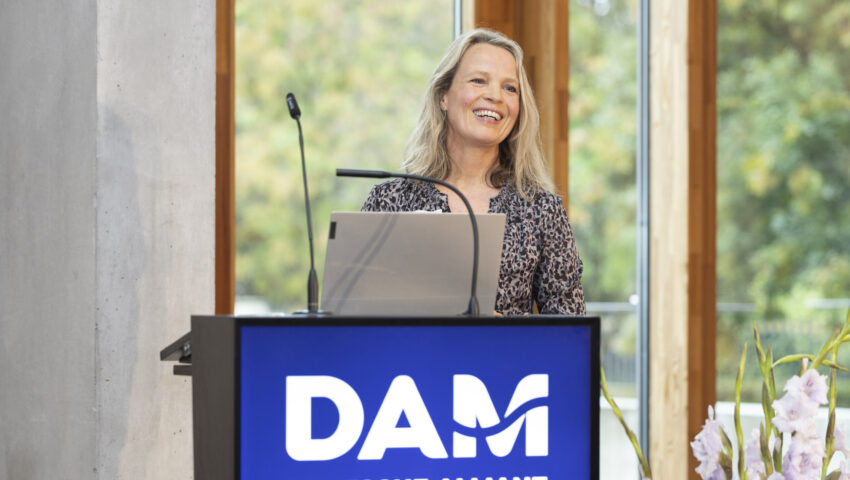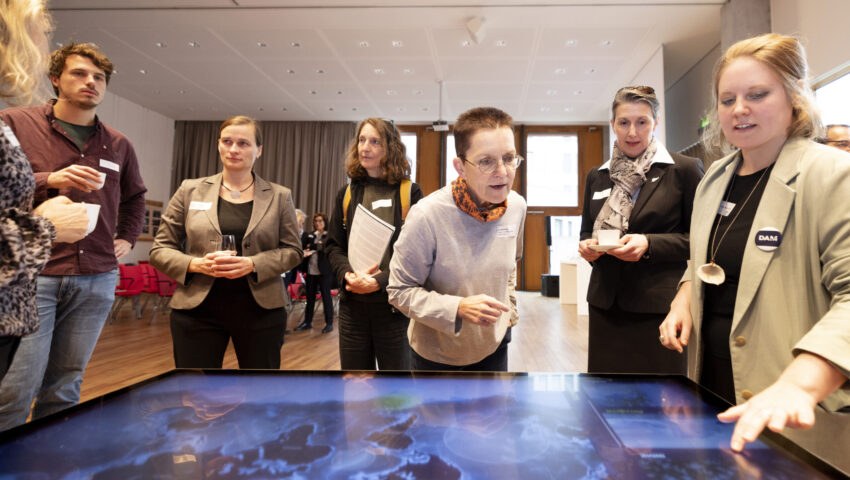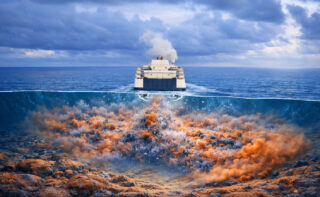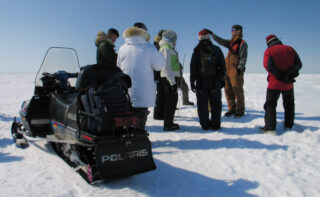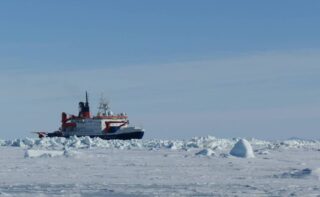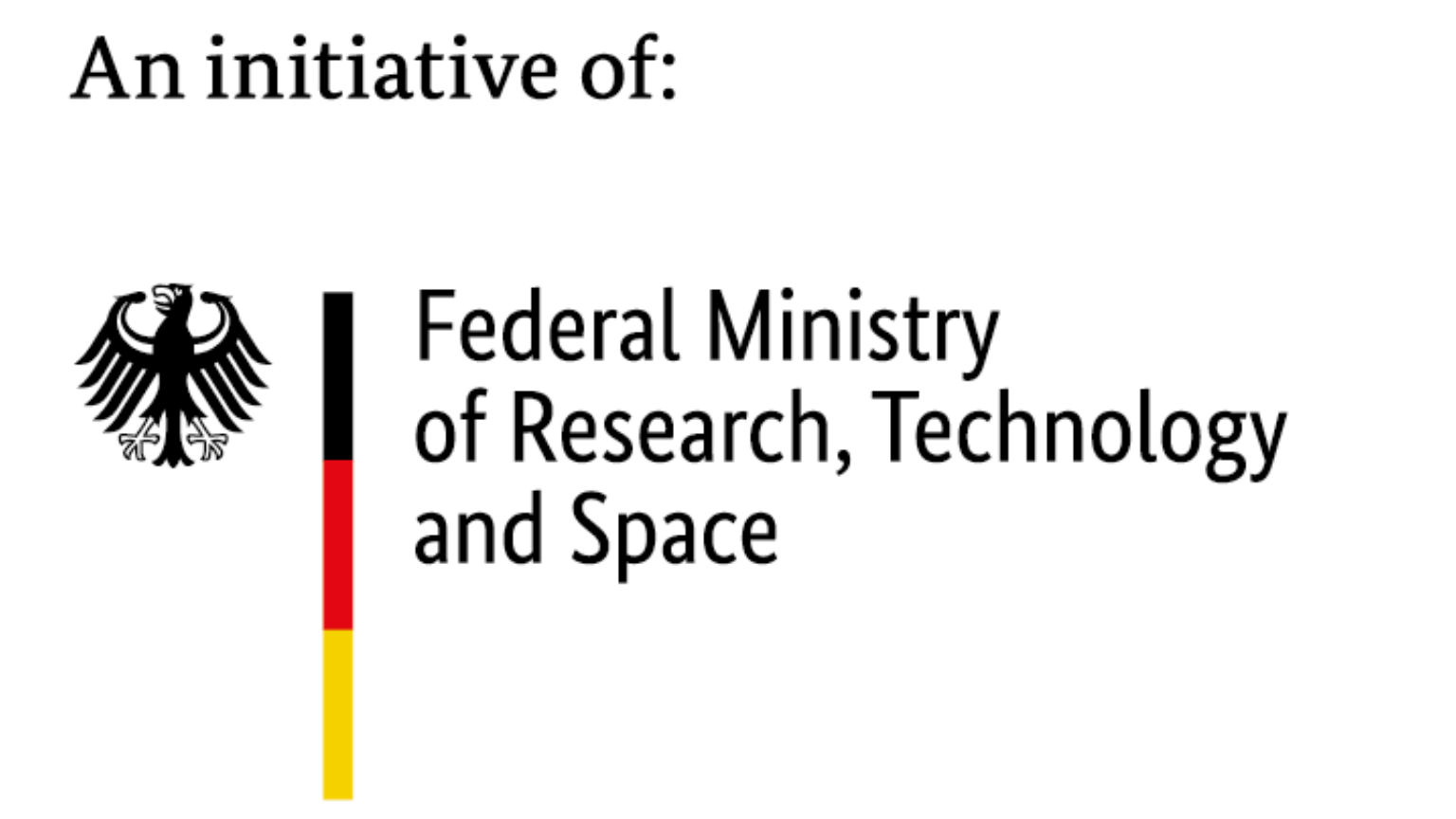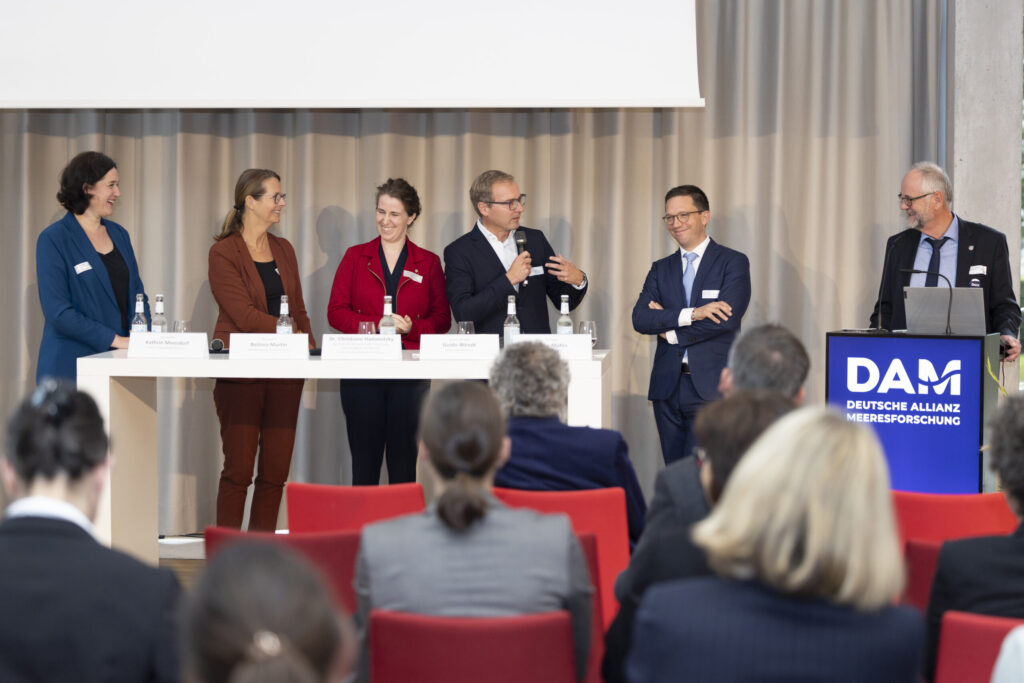
Generate and implement practical knowledge
The North German Conference of Science Ministers (NWMK) confers with DAM about its transfer activities
On October 9, DAM invited to a forum at the Bremen State Office in Berlin following the suggestion of the Northern German Science Ministers’ Conference (NWMK) to discuss the topic “Sea Future – Transfer Activities of Marine Research for the Future of the Coasts, Seas and Oceans”. Along with the presentation of current projects of the DAM Transfer – the information portal “Oceans online” and the “Interactive World Ocean” – the focus of the event was on discussing how the transfer of scientific findings to politics and society can be organized best.
The objective of transfer is to make scientific findings available as a basis for decisions in politics, industry and civil society. Kathrin Moosdorf, Senator for Environment, Climate and Science in Bremen, acknowledged DAM’s important contribution to climate protection in her welcoming address: “We need to better understand how the oceans work. This is the basis for protecting them and achieving the UN’s sustainability goals,” she said. “Marine and climate sciences make a crucial contribution to this. They are researching how to maintain biodiversity in the oceans and how to promote climate change mitigation. DAM is the central network for linking the diverse research approaches in these fields to advance marine and climate protection.”
Marie-Catherine Riekhof, professor at the University of Kiel, contributed a scientific impetus with a short presentation on “Co-Design with Stakeholders – Practice of Living Labs”.
Marine conservation and sustainable use involve the whole society
In the subsequent panel discussion “Generating and implementing practical knowledge”, Sebastian Unger, Federal Government Commissioner for the Oceans at the Federal Ministry for the Environment, Nature Conservation, Nuclear Safety and Consumer Protection (BMUV), emphasized that responsibility for the oceans does not lie solely with the northern German (coastal) states: “Marine protection begins inland,” he said. “Our behavior on land – How do we sustain ourselves? How do we get from A to B? How do we consume resources? – have a strong impact on the oceans and their protection”, he said. “This is a problem for society as a whole, and it’s not something that politicians can solve on their own.”
Petra Mahnke, vice chair and managing director of the Society for Maritime Technology (GMT), emphasized the importance of scientific findings for the maritime industry, which needs actionable knowledge for what contributions the industry can make to agree on the protection and sustainable use of the seas.
In a closing panel, the North German science ministers and senators or their representatives drew up a summary. The conclusion of all participants was: Scientific findings are an important basis for decisions in politics, economy and society – and DAM is the appropriate institution to pool them. “We are very pleased that DAM has such strong support from the federal and state governments,” concluded DAM Board Chairman Joachim Harms. “As a new model of cooperation between the federal and state governments, DAM is designed for long-term collaboration on specific topics across institutions and funding bodies – so that the major societal challenges towards a more sustainable approach to coasts, seas and oceans can be tackled together.”
Header picture: Sinje Hasheider
Newsletter
Always up to date with the DAM newsletter. (German only)
